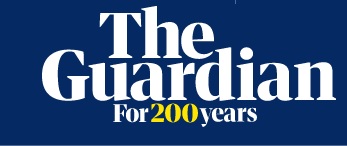The process would require dialogue with all signatory countries to the UN framework convention on climate change (UNFCCC) and criteria for how the process would unfold, Silva said. “Once we have criteria, a governance structure can be drawn up; once we have a strategy, and create safeguards to be able to establish trust in the process, I believe that with these elements we can transform good ideas into steps that are clearer, and more concrete.”
There is no guarantee that a proposal to start drawing up a roadmap would win approval at Cop30, even if it does not require the formal consent of the conference, which proceeds by consensus and can be hijacked by special interests. Cop experts have told the Guardian they believe there could be support for such a proposal from about 60 countries, but there are thought to be at least 40 opposed. There are 195 countries represented at the talks.
Leo Roberts, a programme lead at the E3G thinktank, said: “Despite being the root cause of climate change, fossil fuels are about the most contentious subject there is within the UN negotiations, so to see a chunky group of countries openly backing a route to achieving global phaseout is in itself pretty groundbreaking.
“In simple terms, there’s no route to a world where warming stays below 1.5C in which countries aren’t able to discuss fossil fuel phaseout.”
Panama’s climate negotiator, Juan Carlos Monterrey, said: “We need this language for real in this conversation. It’s quite stupid that we talk about everything but that when fossil fuels are the actual problem.”
Negotiations continued on Saturday on four outstanding issues that have not yet been incorporated into the formal agenda: trade, transparency, finance and how to address the shortfall between the emissions cuts countries have planned and those required to hold to the 1.5C temperature limit.
The Cop30 president, André Corrêa do Lago, promised a “note” that would address these issues, after consultations – which have been going on since Monday – were inconclusive. He called on countries to adopt the “mutirão” spirit, meaning one of cooperation and constructive discussion.
Work on other substantive issues – including adaptation to the impacts of the climate crisis, the just transition for those affected by the move to a low-carbon economy and how to build institutional capacity in developing countries – carried on productively, the presidency said.
Brazil’s chief negotiator, Liliam Chagas, said the technical part of the Cop process was nearing completion, and the political phase – when ministers who have the power to change their countries’ positions arrive – was beginning.




